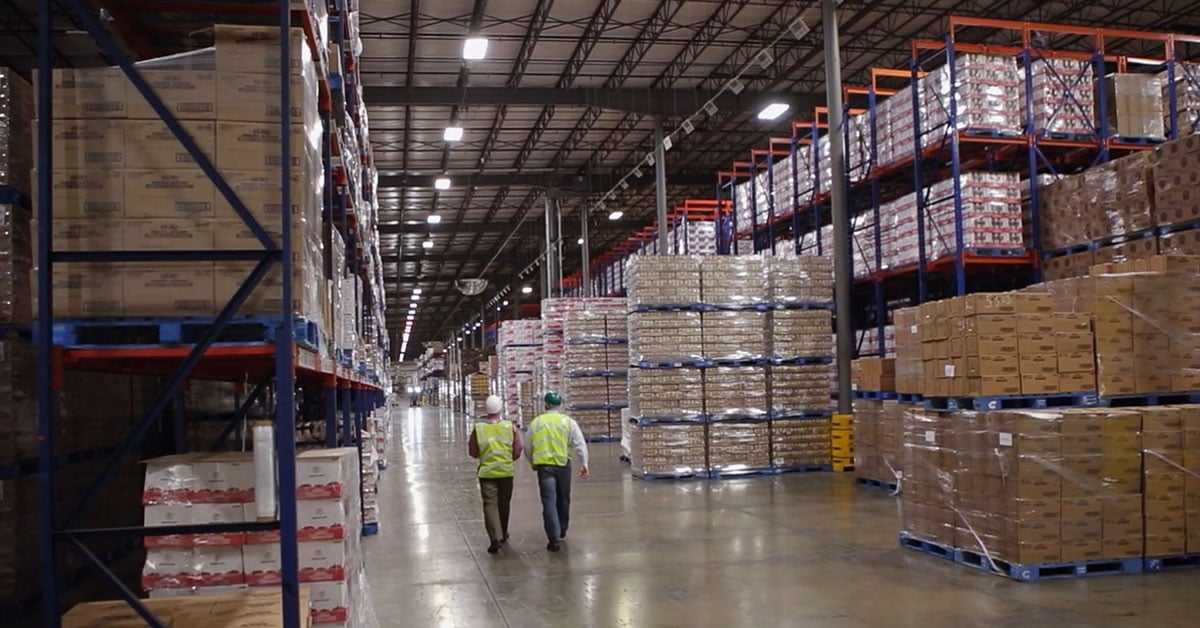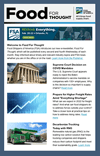Kraft Heinz To Build Major Automated CPG DC in North America
by Staff, on Jul 24, 2023 3:12:56 PM
 One of the largest food and beverage companies in the world with U.S. $26 billion in net sales in 2020, Kraft Heinz is investing $400 million to build one of the largest automated CPG Distribution Centers in North America – rivaling all its current facilities.
One of the largest food and beverage companies in the world with U.S. $26 billion in net sales in 2020, Kraft Heinz is investing $400 million to build one of the largest automated CPG Distribution Centers in North America – rivaling all its current facilities.
The Kraft Heinz Company, a member of Food Shippers of America (FSA), recently announced a more than U.S. $400 million investment to build one of the largest automated CPG distribution centers in North America. Located in DeKalb, Ill., the 775,000 square-foot national distribution facility will feature state-of-the-art automation technology and national railway access - enabling Kraft Heinz to drive greater supply chain efficiencies and distribute its products to retail and foodservice customers faster than ever. The facility is expected to bring more than 150 jobs to the region.
“As we continue on our journey to lead the future of food, our talented North America teams and collaborative external partners are innovating at a rapid pace to expand our supply chain capabilities,” says Carlos Abrams-Rivera, Executive Vice President and President, North America at Kraft Heinz. “The DeKalb distribution center is expected to play a critical role in our larger distribution strategy, moving more than 60% of Kraft Heinz dry goods in North America through our automated facilities. It’s a testament to the dynamic, out-of-the-box thinking of our supply chain teams whose work enables us to operate with greater efficiency and agility every day.”
The facility’s design includes a 24/7 automated storage and retrieval system with the ability to drive twice the volume for Kraft Heinz customers, distributing more than 60% of the Company’s foodservice business and approximately 30% of all dry goods. It is also expected to contribute to Kraft Heinz’s ability to achieve its broader ESG ambitions to reduce its operational environmental footprint through the implementation of sustainable technology and solutions to reduce the waste produced at the facility and minimize its overall environmental impact.
“We’re driving end-to-end transformation across our entire supply chain, investing in automated technology and digitized solutions to increase the agility of our logistics operations,” says Erin Mitchell, Vice President of Logistics and Head of Network Restructuring at Kraft Heinz. “The construction of our new DeKalb distribution center is the latest example of this transformation in action. We have designed it to help ensure the delivery of our delicious, innovative and iconic products at the right time for our customers and consumers for years to come.”
Kraft Heinz has partnered with Trammell Crow Company (TCC), a global commercial real estate developer; Krusinski Construction Company (KCC), as general contractor; Daifuku, as integrated logistics automation provider; and the City of DeKalb and the DeKalb County Economic Development Corporation (DCEDC) on the development of the facility.
“We are pleased to be partnering with Kraft Heinz to develop this innovative project, working alongside KCC to deliver a state-of-the-art facility for Kraft Heinz,” says Josh Udelhofen, Senior Vice President with TCC Chicago. “Located in the master planned ChicagoWest Business Center, which TCC has developed in partnership with Jerry Krusinski and his KCC team, Kraft Heinz will be located near other large-scale distribution companies in DeKalb. The area benefits from a strong labor pool, Enterprise Zone incentives, as well as an ideal location along I-88. We look forward to reaching the next construction milestone and moving this project along to deliver the facility to Kraft Heinz in 2025.”
Like this kind of content? Subscribe to our "Food For Thought" eNewsletter!
Now more than ever, professionals consume info on the go. Distributed twice monthly, our "Food For Thought" e-newsletter allows readers to stay informed about timely and relevant industry topics and FSA news whether they're in the office or on the road. Topics range from capacity, rates and supply chain disruption to multimodal transportation strategy, leveraging technology, and talent management and retention. Learn More



